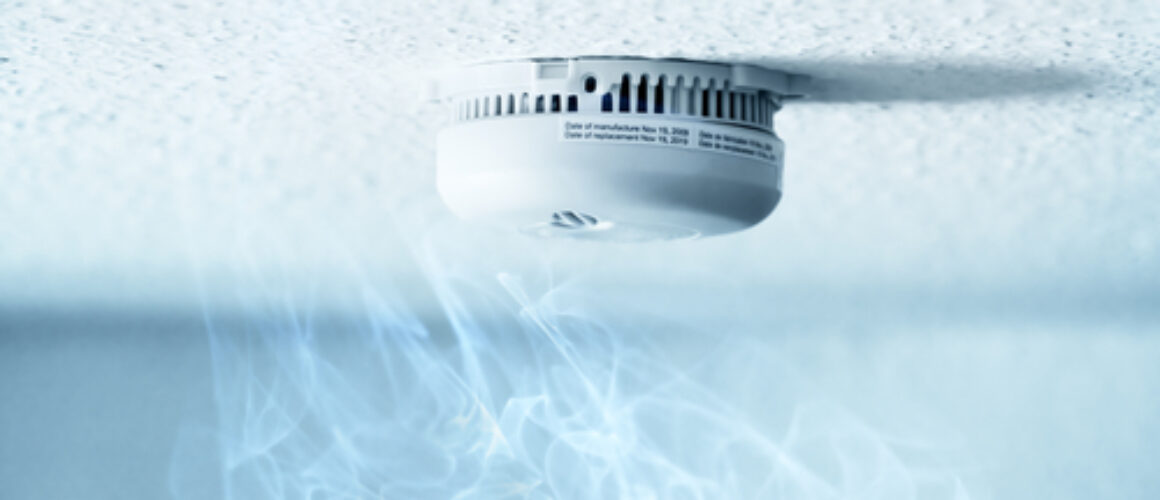Choosing the Right Fire Detection System for Your Home or Business
Fire safety is paramount for both homes and businesses. Having the right fire detection system in place can save lives and minimise property damage in the event of a fire. With numerous options available in the market, it can be overwhelming to choose the most suitable fire detection system for your specific needs. In this blog, we will explore the different types of fire detection systems, their features, and provide valuable insights on how to select the right system for your home or business.
Why Invest in a Fire Detection System?
Before diving into the specifics of fire detection systems, it’s important to understand their importance. Fire detection systems serve as an early warning system, detecting smoke, heat, or flames in order to alert inhabitants and activate necessary safety measures such as automatic sprinklers or alarms. By investing in a reliable fire detection system, you are taking proactive measures to protect your loved ones, employees, and property.
Types of Fire Detection Systems
1. Smoke Detectors
Smoke detectors are the most commonly utilised fire detection systems. These devices detect the presence of smoke particles in the air, triggering an alarm when smoke is detected. Smoke detectors come in two main types: ionisation smoke detectors and photoelectric smoke detectors.
- Ionisation Smoke Detectors: These detectors use a small amount of radioactive material to ionise the air in a sensing chamber, creating an electrical current. When smoke enters the chamber, it disrupts the current and triggers the alarm. Ionisation smoke detectors are particularly effective for detecting fast-burning fires.
- Photoelectric Smoke Detectors: These detectors use a beam of light in a sensing chamber to detect smoke particles. When smoke enters the chamber, it scatters the light and triggers the alarm. Photoelectric smoke detectors are best at detecting slow, smouldering fires.
2. Heat Detectors
Heat detectors are specifically designed to detect increases in temperature. They can be further categorised into two types: fixed temperature heat detectors and rate-of-rise heat detectors.
- Fixed Temperature Heat Detectors: These detectors are designed to activate when a certain temperature threshold is reached. Once the predetermined temperature is surpassed, the detector triggers the alarm. Fixed temperature heat detectors are suitable for areas with consistent temperatures like kitchens or boiler rooms.
- Rate-of-Rise Heat Detectors: These detectors are designed to detect rapid changes in temperature. If the temperature increases rapidly, the detector triggers the alarm, even without reaching a specific threshold. Rate-of-rise heat detectors are ideal for areas that aren’t subject to frequent temperature fluctuations.
3. Flame Detectors
Flame detectors are specifically designed to detect the presence of flames. They utilise various technologies, including infrared, ultraviolet, or combination detectors, to identify the unique characteristics of flames. When a flame is detected, the detector triggers the alarm. Flame detectors are commonly used in industrial or high-risk environments where early flame detection is crucial.
How to Choose the Right Fire Detection System
Selecting the most suitable fire detection system for your home or business requires careful consideration of several factors:
1. Risk Assessment
Start by conducting a thorough risk assessment of your property. Identify potential fire hazards and vulnerable areas. This will help you determine the type and quantity of detectors required for adequate coverage.
2. Regulations and Standards
Familiarise yourself with local fire safety regulations and standards. Different jurisdictions may have specific requirements regarding the type and installation of fire detection systems. Ensure that the system you choose complies with these regulations.
3. Purpose and Environment
Consider the purpose of the building and the specific environment in which the fire detection system will be installed. Different areas may require different types of detectors. For example, kitchens may need heat detectors to avoid false alarms from cooking activities, while sensitive areas such as server rooms may require specialised flame detectors.
4. Budget and Maintenance
Consider your budget for the fire detection system, including installation and maintenance costs. While it’s tempting to opt for the cheapest option, prioritise reliability and quality. Regular maintenance and inspections are essential to ensure optimal performance, so factor in ongoing maintenance costs as well.
5. Professional Installation
To ensure proper functionality and coverage, it is highly recommended to seek professional installation services. Trained technicians can assess your property, recommend the most appropriate fire detection system, and ensure correct installation in accordance with regulations and manufacturer guidelines.
Conclusion
Selecting the right fire detection system for your home or business is crucial for ensuring optimal fire safety. By understanding the different types of fire detection systems available in the market and considering factors such as risk assessment, regulations, and the specific environment, you can make an informed decision. Remember, investing in a reliable fire detection system and professional installation is an investment in the safety and well-being of your loved ones, employees, and property. Stay safe and secure with the right fire detection system from Electrical Discounted Supplies.




